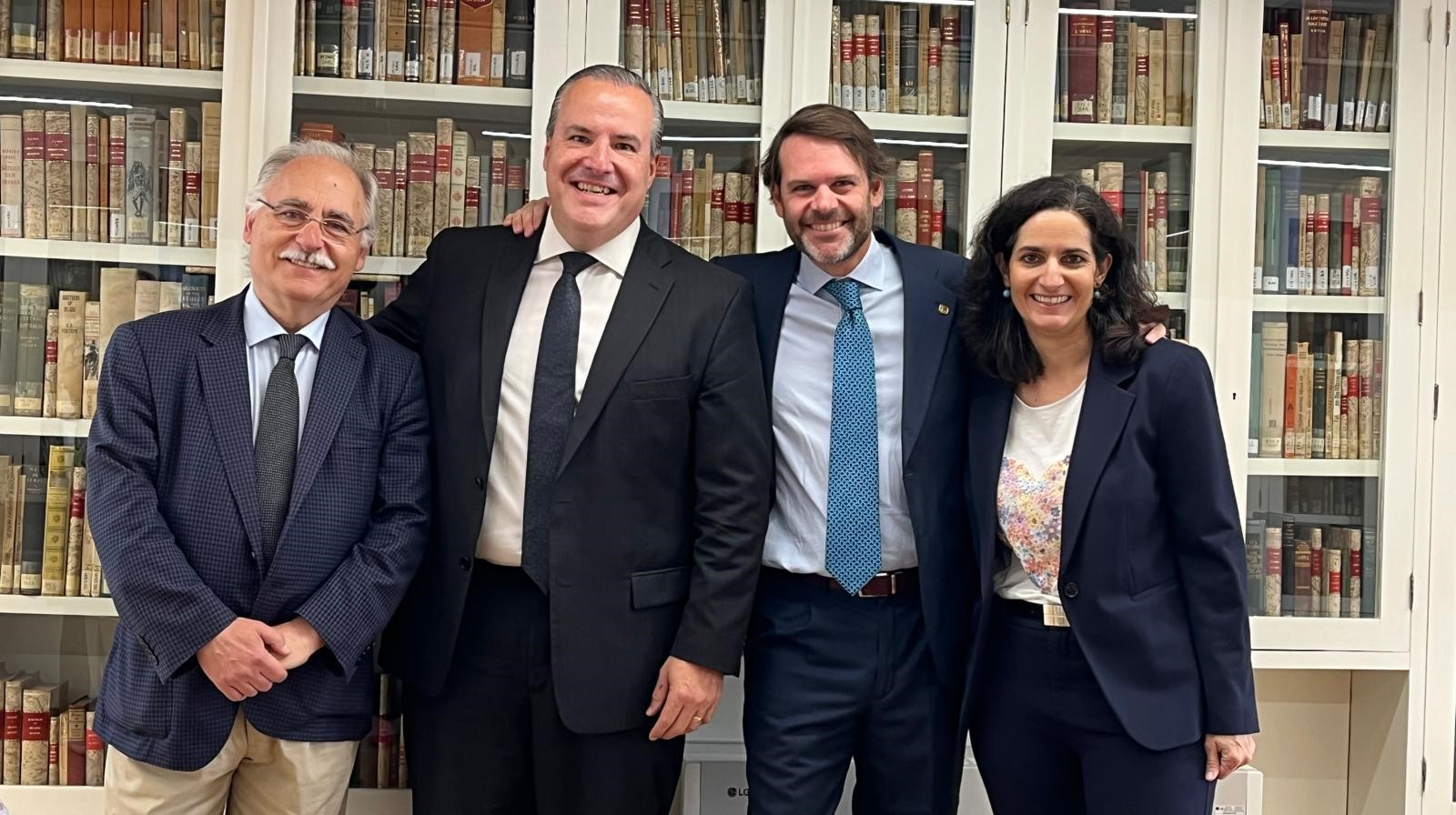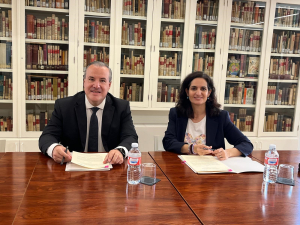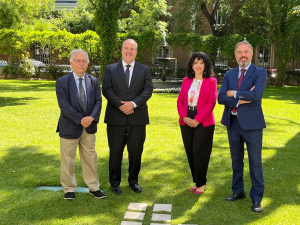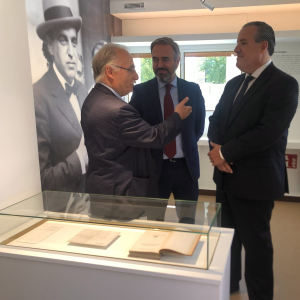The Ortega-Marañón Foundation and PRIM sign a collaboration agreement for the implementation of orthoprosthetics training programs

Dr Bandrés, Director of the Gregorio Marañón Study Center of the Foundation; Fernando Oliveros, Executive Director of Prim S.A; Jorge Prim, Vice President of Prim; Lucia Sala, Director of the Ortega-Marañón Foundation.
Madrid, May 29th, 2024. The Ortega-Marañón Foundation and PRIM, Establishments Orthopedic Prim S.A. (EOP), have signed a collaboration agreement to develop training programs on orthopedics and prosthetics, which will have the participation of leading professionals in this field.

The signing of the agreement was held at the Foundation’s institutional headquarters in Madrid, and was attended by Fernando Oliveros Arreaga, executive director of Prim S.A. Lucía Sala Silveira, director of the Ortega-Marañón Foundation; Jorge Prim, vice-president of PRIM; Fernando Bandrés Moya, director of the Gregorio Marañón Study Center of the Foundation and professor of Legal Medicine at the Complutense University of Madrid; Araceli Bailón, academic coordinator of the Ortega Marañón Study Center; Javier del Río Sastre, director of business development and Elena Diez, marketing and communication manager, both from PRIM.

As a first activity, both institutions will organize a series of meetings under the title “Orthoprosthetics Seminars“, aimed at PRIM’s orthoprosthetics technicians, business or commercial partners. These seminars will offer both theoretical and practical training, aimed at expanding their skills in the development of their profession, significantly marking their progress and specialization in the field.
The training falls within the Foundation’s objectives of quality, regulated and accredited teaching, and coincides with Prim Academy’s teaching initiatives.
“This agreement is the beginning of a very important collaboration in the field of medicine and health sciences. We must bear in mind that a large number of the current Spanish population demand more advances in prosthetics and orthotics to improve their quality of life,” explains Fernando Bandrés, director of the Gregorio Marañón Study Center. “The incorporation of new technologies and innovation in this field determine the need for continuous and innovative training for professionals in the 21st century.”

For the vice-president of the PRIM Group, “the continuous training of professionals, so that they can learn about and handle the most innovative devices and treatments, is key in the healthcare sector and an essential ally of innovation. In Spain, we have leading professionals and, thanks to this agreement, through activities such as courses, seminars, conferences, research work, stays and joint publications, we will advance in the common goal of consolidating their training in orthopedics and prosthetics”.
PRIM is a leading Spanish company in the healthcare sector with an export network in 75 countries, specialized in medical services that add value to the healthcare system. It has been listed on the Spanish stock exchange since 1985 and is recognized in the market for the avant-garde nature of its products. Throughout its more than 153 years, it has consolidated its position in the health sector as a reference in the supply of hospital and orthopedic products, physiotherapy, rehabilitation, geriatrics and technical aids, through two main branches of activity: Medical Technologies, and Mobility and Health Care. Specialized technical advice, the ability to adapt to the needs of customers, and the search for excellence and close and quality service allow PRIM to be part of the select group of 32 Spanish companies founded before 1900 that are still in business.
The Gregorio Marañón Study Center of the Fundación Ortega-Marañón focuses on promoting and developing culture, training and research in the field of medicine and the humanities, taking as a reference and example the life and medical and intellectual work of Dr. Gregorio Marañón y Posadillo. In order to fulfill this mission, the Center works to disseminate medicine and the humanities within the new framework of the culture of humanization of health care, technological innovation and health policies.



